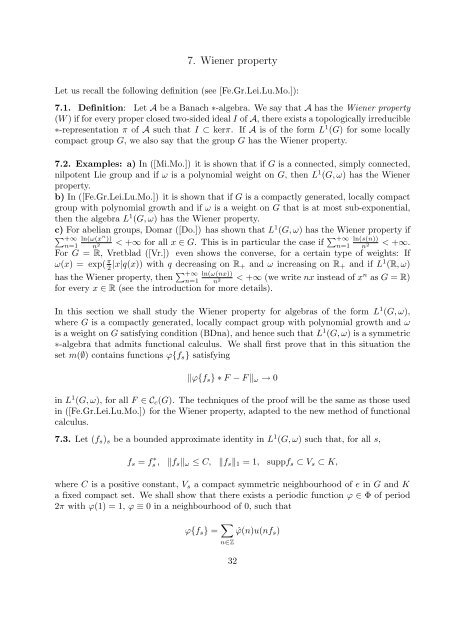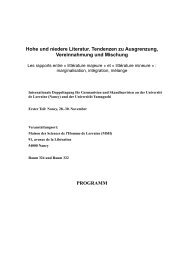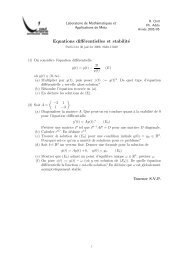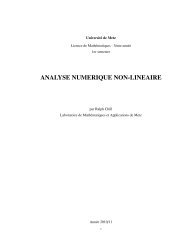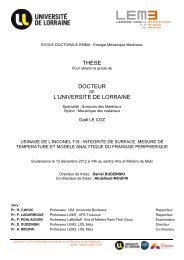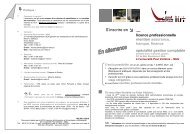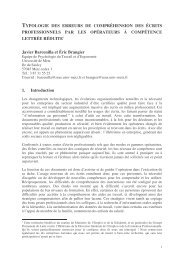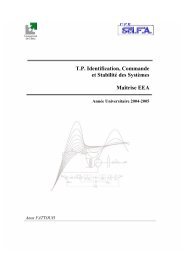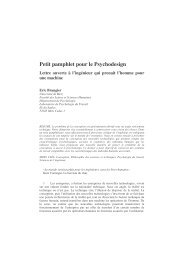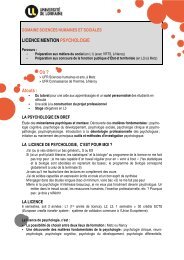Functional calculus in weighted group algebras
Functional calculus in weighted group algebras
Functional calculus in weighted group algebras
You also want an ePaper? Increase the reach of your titles
YUMPU automatically turns print PDFs into web optimized ePapers that Google loves.
7. Wiener propertyLet us recall the follow<strong>in</strong>g def<strong>in</strong>ition (see [Fe.Gr.Lei.Lu.Mo.]):7.1. Def<strong>in</strong>ition: Let A be a Banach ∗-algebra. We say that A has the Wiener property(W ) if for every proper closed two-sided ideal I of A, there exists a topologically irreducible∗-representation π of A such that I ⊂ kerπ. If A is of the form L 1 (G) for some locallycompact <strong>group</strong> G, we also say that the <strong>group</strong> G has the Wiener property.7.2. Examples: a) In ([Mi.Mo.]) it is shown that if G is a connected, simply connected,nilpotent Lie <strong>group</strong> and if ω is a polynomial weight on G, then L 1 (G, ω) has the Wienerproperty.b) In ([Fe.Gr.Lei.Lu.Mo.]) it is shown that if G is a compactly generated, locally compact<strong>group</strong> with polynomial growth and if ω is a weight on G that is at most sub-exponential,then the algebra L 1 (G, ω) has the Wiener property.c) For abelian <strong>group</strong>s, Domar ([Do.]) has shown that L 1 (G, ω) has the Wiener property if∑ +∞ ln(ω(x n ))n=1 n< +∞ for all x ∈ G. This is <strong>in</strong> particular the case if ∑ +∞ ln(s(n))2 n=1 n< +∞.2For G = R, Vretblad ([Vr.]) even shows the converse, for a certa<strong>in</strong> type of weights: Ifω(x) = exp( π 2 |x|q(x)) with q decreas<strong>in</strong>g on R + and ω <strong>in</strong>creas<strong>in</strong>g on R + and if L 1 (R, ω)has the Wiener property, then ∑ +∞ ln(ω(nx))n=1 n< +∞ (we write nx <strong>in</strong>stead of x n as G = R)2for every x ∈ R (see the <strong>in</strong>troduction for more details).In this section we shall study the Wiener property for <strong>algebras</strong> of the form L 1 (G, ω),where G is a compactly generated, locally compact <strong>group</strong> with polynomial growth and ωis a weight on G satisfy<strong>in</strong>g condition (BDna), and hence such that L 1 (G, ω) is a symmetric∗-algebra that admits functional <strong>calculus</strong>. We shall first prove that <strong>in</strong> this situation theset m(∅) conta<strong>in</strong>s functions ϕ{f s } satisfy<strong>in</strong>g‖ϕ{f s } ∗ F − F ‖ ω → 0<strong>in</strong> L 1 (G, ω), for all F ∈ C c (G). The techniques of the proof will be the same as those used<strong>in</strong> ([Fe.Gr.Lei.Lu.Mo.]) for the Wiener property, adapted to the new method of functional<strong>calculus</strong>.7.3. Let (f s ) s be a bounded approximate identity <strong>in</strong> L 1 (G, ω) such that, for all s,f s = f ∗ s , ‖f s ‖ ω ≤ C, ‖f s ‖ 1 = 1, suppf s ⊂ V s ⊂ K,where C is a positive constant, V s a compact symmetric neighbourhood of e <strong>in</strong> G and Ka fixed compact set. We shall show that there exists a periodic function ϕ ∈ Φ of period2π with ϕ(1) = 1, ϕ ≡ 0 <strong>in</strong> a neighbourhood of 0, such thatϕ{f s } = ∑ n∈Zˆϕ(n)u(nf s )32


